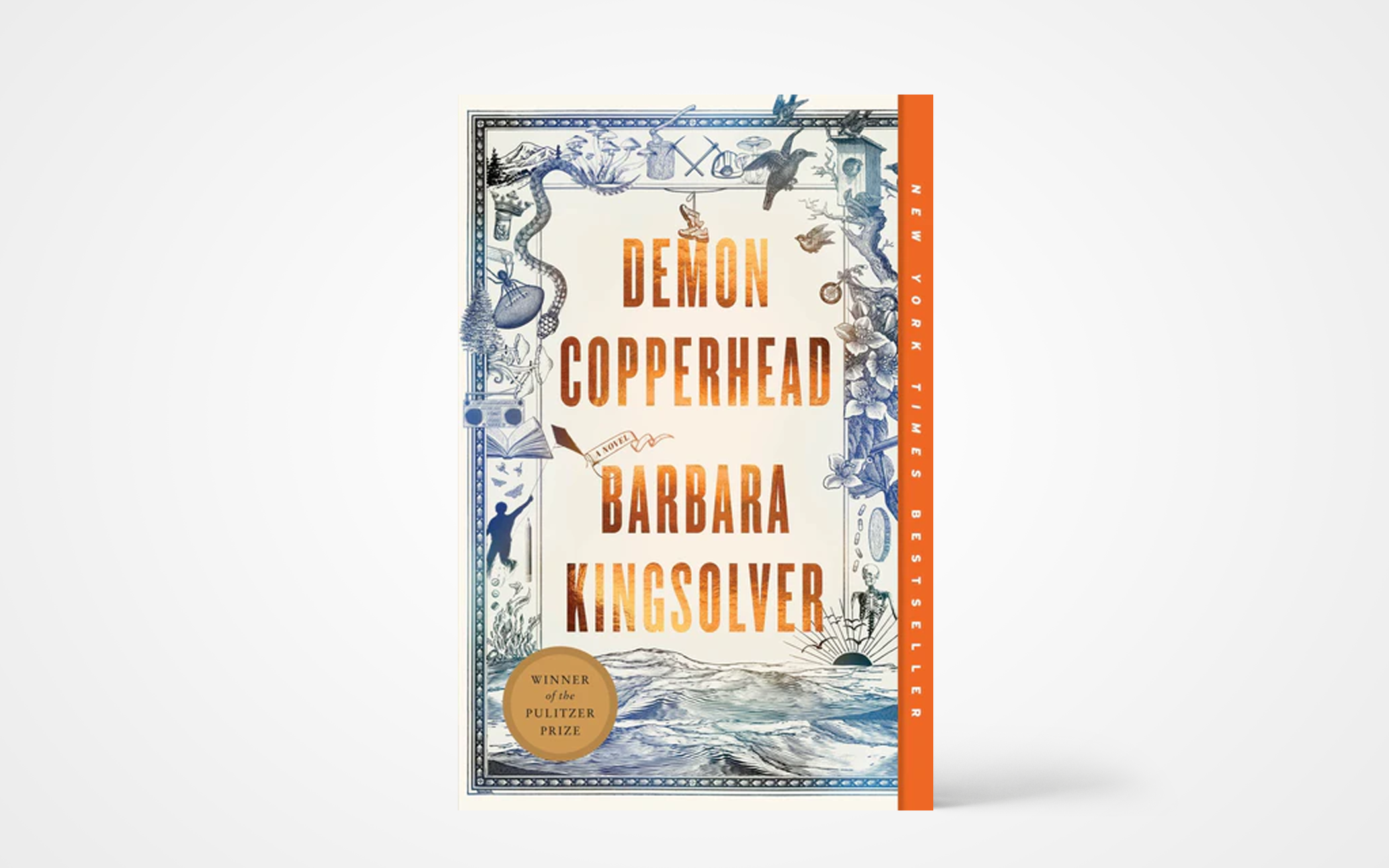It’s the late 1990s, and a redheaded boy named Damon—quickly nicknamed Demon Copperhead—is growing up in the Appalachian mountains. He’s got a single mother, a best friend, and a world of problems heading his way.
It’s not hard to grow attached to this boy as we the reader follow his journey of growing up in this specific place and time. We rage with him, ache with him, and worry for him as he tries to simply survive. Through Demon’s voice and story, readers are immersed in Appalachian culture, and by the end, they might feel themselves a part of it. Along the way, readers can’t help but learn a bit about the exploitation of the people of the Appalachians, not only by the coal companies but also by the pharmaceutical companies. The opioid epidemic hits hard in the early 2000s, and Demon is in the middle of it. Readers also must contend with the fact that the “hillbillies” of Appalachia are always the butt of the joke, as Demon says pointedly, “We are in the room. We can hear you.”
None of this feels heavy-handed but rather the natural discoveries of walking in Demon Copperhead’s shoes. Author Barbara Kingsolver, who is from Kentucky, said she wanted to write “the great Appalachian novel,” and boy did she. She uses Charles Dickens’ David Copperfield as a template to create a contemporary story that fairly portrays the people of Appalachia and showcases the opioid epidemic and its devastating and widespread effects. I didn’t know about the Copperfield connection until after I read the book and, craving more, started looking up interviews with Kingsolver. So be assured that you don’t need to read one to understand or connect with the other.
Church and the Bible are referenced a few times in the book, such as the time the story of Lazarus scares a young Demon, but for the most part are largely absent from this story. Even so, I brought my own Christian worldview into the reading experience, feeling outraged at the injustices Demon experiences and relieved and grateful for those who look out for him. In the Bible, God specifically calls his people to care for orphans, and Demon Copperhead’s story is a prime example of why: the world cannot be trusted to do it.
This book will grip your heart and attention. It is also laced with f-bombs, being true to the characters, and has its share of drug use. The book does not treat the drug use positively, though I suppose it’s neutral toward the salty language. If you can handle those things, it’s worth the read. There is no question that this book deserved its Pulitzer, and anyone who makes it to the end will be the better for it. (Harper, Faber &Faber)
About the Author
Sarah Heth Sundt is the associate editor of The Banner. She is a member of Calvary on 8th in Holland, Mich.

